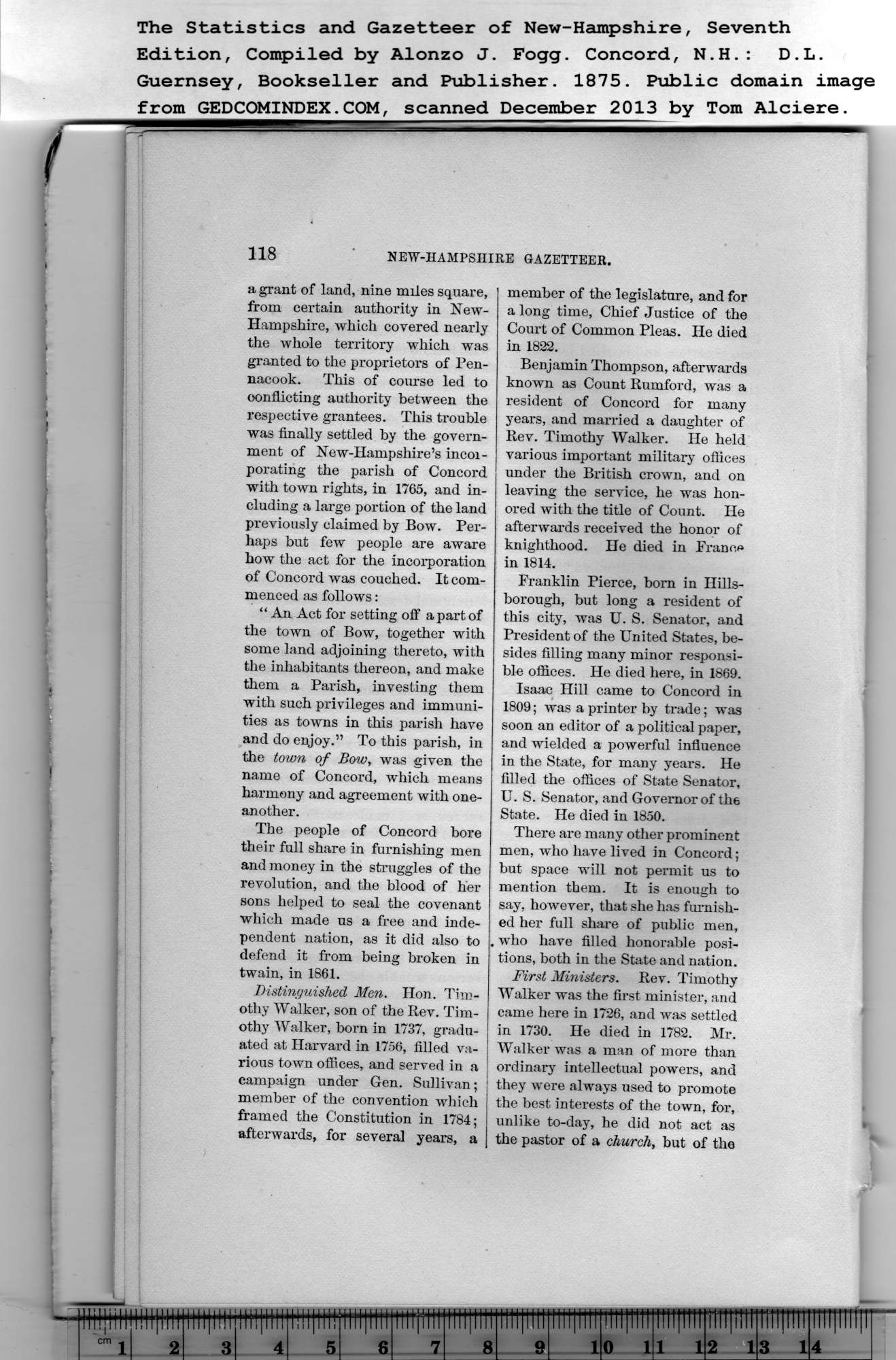|
a grant of land, nine miles square,
from certain authority in New-
Hampshire, which covered nearly
the whole territory which was
granted to the proprietors of Pen-
nacook. This of course led to
conflicting authority between the
respective grantees. This trouble
was finally settled by the govern-
ment of New-Hampshire’s incor-
porating the parish of Concord
with town rights, in 1765, and in-
cluding a large portion of the land
previously claimed by Bow. Per-
haps but few people are aware
how the act for the incorporation
of Concord was couched. It com-
menced as follows:
“ An Act for setting off a part of
the town of Bow, together with
some land adjoining thereto, with
the inhabitants thereon, and make
them a Parish, investing them
with such privileges and immuni-
ties as towns in this parish have
and do enjoy.” To this parish, in
the town of Bow, was given the
name of Concord, which means
harmony and agreement with one-
another.
The people of Concord bore
their full share in furnishing men
and money in the struggles of the
revolution, and the blood of her
sons helped to seal the covenant
which made us a free and inde-
pendent nation, as it did also to
defend it from being broken in
twain, in 1861.
Distinguished Men. Hon. Tim-
othy Walker, son of the Rev. Tim-
othy Walker, born in 1737, gradu-
ated at Harvard in 1756, filled va-
rious town offices, and served in a
campaign under Gen. Sullivan;
member of the convention which
framed the Constitution in 1784;
afterwards, for several years, a
member of the legislature, and for
a long time, Chief Justice of the
Court of Common Pleas. He died
in 1822. |
Benjamin Thompson, afterwards
known as Count Rumford, was a
resident of Concoi'd for many
years, and married a daughter of
Rev. Timothy Walker. He held
various important military offices
under the British crown, and on
leaving the service, he was hon-
ored with the title of Count. He
afterwards received the honor of
knighthood. He died in France
in 1814.
Franklin Pierce, horn in Hills-
borough, hut long a resident of
this city, was U. S. Senator, and
President of the United States, be-
sides filling many minor responsi-
ble offices. He died here, in 1869.
Isaac Hill came to Concord in
1809; was a printer by trade; was
soon an editor of a political paper,
and wielded a powerful influence
in the State, for many years. He
filled the offices of State Senator,
U. S. Senator, and Governor of the
State. He died in 1850.
There are many other prominent
men, who have lived in Concord;
but space will not permit us to
mention them. It is enough to
say, however, that she has furnish-
ed her full share of public men,
who have filled honorable posi-
tions, both in the State and nation.
First Ministers. Rev. Timothy
Walker was the first minister, and
came here in 1726, and was settled
in 1730. He died in 1782. Mr.
Walker was a man of more than
ordinary intellectual powers, and
they were always used to promote
the best interests of the town, for,
unlike to-day, he did not act as
the pastor of a church, but of the |
